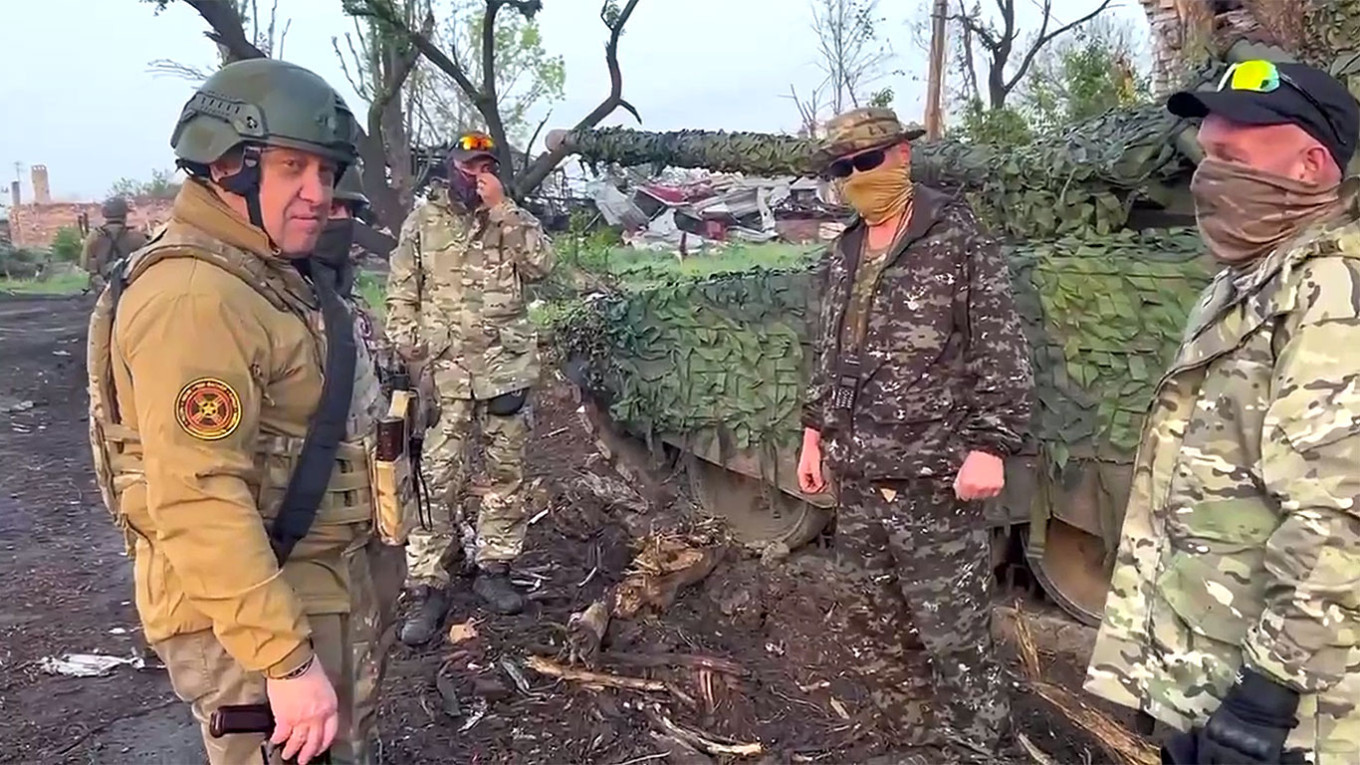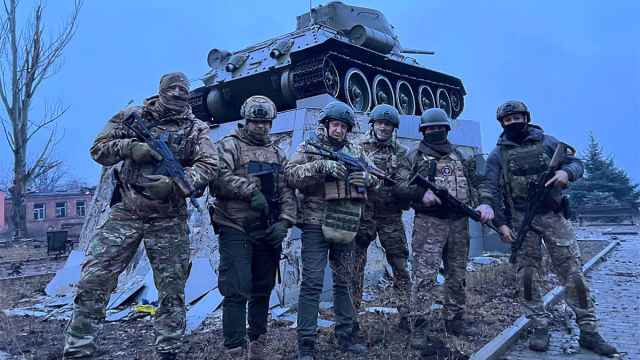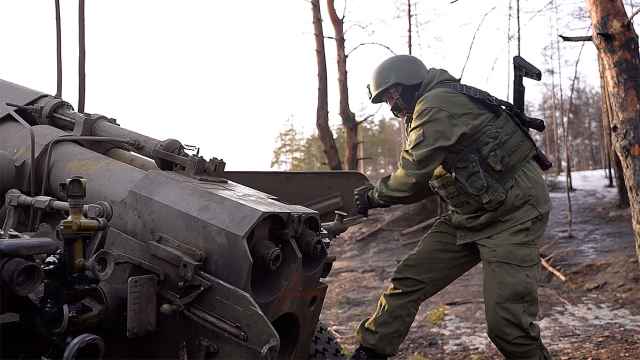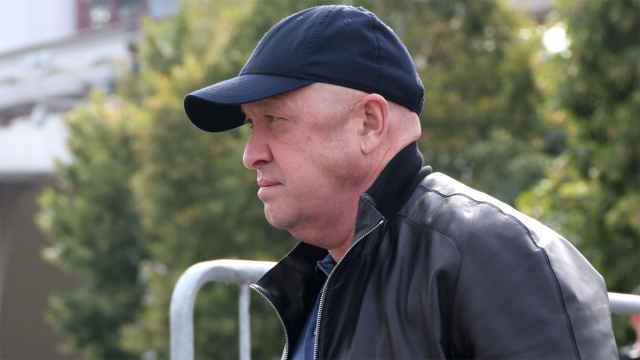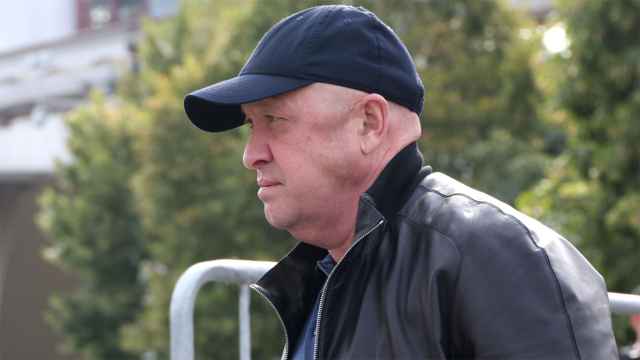The head of Russia’s Wagner mercenary group Yevgeny Prigozhin was charged with “inciting an armed uprising” and military vehicles were deployed to the streets of Moscow and Rostov-on-Don after he made an extraordinary threat to “stop” Russia’s top military brass.
Prigozhin on Friday accused Russia’s military leadership of ordering strikes on Wagner’s camps and killing a "huge" number of forces.
In a tirade against the Defense Ministry, with whom he has been feuding publicly for months over the handling of the war in Ukraine, Prigozhin, 62, said Wagner's leadership had determined that "the evil that the military leadership of the country brings must be stopped."
Hours later, Russia’s Federal Security Agency (FSB) had filed criminal charges against Prigozhin for "inciting an armed uprising."
The charges are punishable by 12 to 20 years in prison.
"Prigozhin’s statements and actions amount to calls for the start of an armed civil conflict on Russian territory and are a ‘stab in the back’ for Russian servicemen fighting pro-fascist Ukrainian forces," the FSB said in a statement carried by state agencies.
Kremlin spokesman Dmitry Peskov said that President Vladimir Putin was aware of the "unfolding situation" around Prigozhin and that "all necessary measures" were being taken.
Shortly after 2:00 a.m. Prigozhin claimed Wagner's forces had "crossed all state borders" and entered the southern Rostov region, where he said Defense Minister Sergei Shoigu was located.
"The Defense Ministry units which were sent to block our path stood aside. ... We will destroy everything that gets in our way. We are going onwards and we will go to the end," he said in a new audio message.
High-ranking Russian officials who spoke to The Moscow Times on condition of anonymity warned against drawing premature conclusions as the situation is developing under the “fog of war.”
But a source close to the Kremlin said that Prigozhin's threats of revolt were the result of the competing military power structures that had emerged amid Russia's war on Ukraine.
"The problem is that in the case of Prigozhin, we got a classic example of two armies and many decision-making centers in the system," the source told The Moscow Times.
"The concern that this would cause problems was debated at meetings in the Kremlin and in the government. But the state management system in Russia has a lot of inertia — most in the Kremlin would throw up their hands, shake their heads and say, 'Yes, that's true. But it's not our business. Let others sort it out.’
“Now it's time to sort it out.”
Following widespread speculation that he had de facto announced an armed revolt against Russia’s military, Prigozhin added: “It is not a coup d’etat. It’s a march of justice. Our actions do not impede [regular Russian] soldiers at all.”
The Russian Defense Ministry denied Prigozhin's claims that its forces fired on Wagner encampments, saying they "do not correspond to reality" and calling them a "provocation."
It later claimed that Ukrainian forces, “taking advantage of Prigozhin’s provocation,” had launched offensive operations near the eastern city of Bakhmut.
Law enforcement authorities have stepped up security measures in Moscow, the state-run TASS news agency said around 1:00 a.m. local time.
"All the most important facilities, state authorities and transport infrastructure facilities have been taken under enhanced protection," TASS cited law enforcement agencies as saying.
Video and photos shared on social media on Friday night showed military vehicles on the streets of Rostov-on-Don as well as in central Moscow.
A Moscow Times reporter in central Moscow did not see a significant military or police presence near the Kremlin.
Elsewhere in the capital, columns of military vehicles were filmed near the Defense Ministry headquarters and the road leading to the presidential administration building was reportedly closed off.
There did not appear to be a notable police presence at the Wagner Group's headquarters in St. Petersburg.
Independent news outlets reported that Russian state media outlets were barred from citing any of Prigozhin’s statements.
In a video posted to Telegram by Andrei Rudyenko, a state-affiliated war correspondent, Russian General Sergei Surovikin called on Wagner fighters to lay down their arms.
“The enemy is just waiting for the political situation in our country to deteriorate. It’s wrong to play into the enemy’s hands during these difficult times,” he said, appearing haggard and holding a rifle on his right leg.
“We are of the same blood. We are warriors. I urge you to stop.”
Over the past year or so, Prigozhin "has felt like a messiah" due to his ability to openly critique the handling of the war effort without punishment, another Russian official who has worked closely with the Wagner leader told The Moscow Times.
"He's on a white horse. Many of us have climbed on it, and fallen... It's only thanks to this that the hubris passed and reason returned. Prigozhin created an army, achieved success in the war, got the right to say things that no one else can say... And now he felt like a messiah. And all the way, not once did he fall off the horse... That is the result."
But as military vehicles rode through the streets of Rostov-on-Don and Moscow, the Kremlin merely released a video of Putin delivering a message marking the Youth Day holiday.
AFP contributed reporting.
A Message from The Moscow Times:
Dear readers,
We are facing unprecedented challenges. Russia's Prosecutor General's Office has designated The Moscow Times as an "undesirable" organization, criminalizing our work and putting our staff at risk of prosecution. This follows our earlier unjust labeling as a "foreign agent."
These actions are direct attempts to silence independent journalism in Russia. The authorities claim our work "discredits the decisions of the Russian leadership." We see things differently: we strive to provide accurate, unbiased reporting on Russia.
We, the journalists of The Moscow Times, refuse to be silenced. But to continue our work, we need your help.
Your support, no matter how small, makes a world of difference. If you can, please support us monthly starting from just $2. It's quick to set up, and every contribution makes a significant impact.
By supporting The Moscow Times, you're defending open, independent journalism in the face of repression. Thank you for standing with us.
Remind me later.





